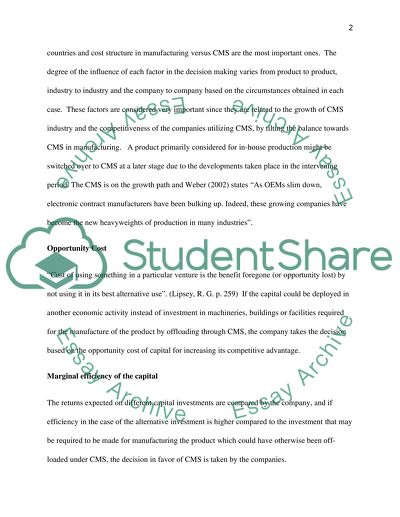Cite this document
(“The role of Contract Manufacturing Service (CMS) Providers in the Term Paper”, n.d.)
Retrieved from https://studentshare.org/environmental-studies/1413943-the-role-of-contract-manufacturing-service-cms
Retrieved from https://studentshare.org/environmental-studies/1413943-the-role-of-contract-manufacturing-service-cms
(The Role of Contract Manufacturing Service (CMS) Providers in the Term Paper)
https://studentshare.org/environmental-studies/1413943-the-role-of-contract-manufacturing-service-cms.
https://studentshare.org/environmental-studies/1413943-the-role-of-contract-manufacturing-service-cms.
“The Role of Contract Manufacturing Service (CMS) Providers in the Term Paper”, n.d. https://studentshare.org/environmental-studies/1413943-the-role-of-contract-manufacturing-service-cms.


